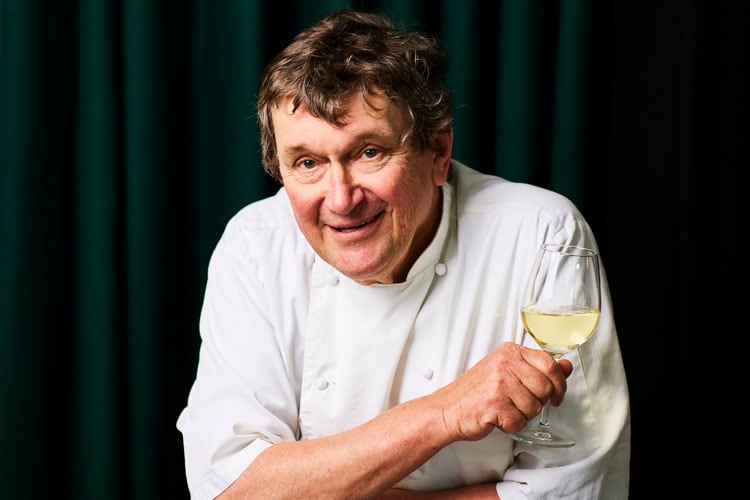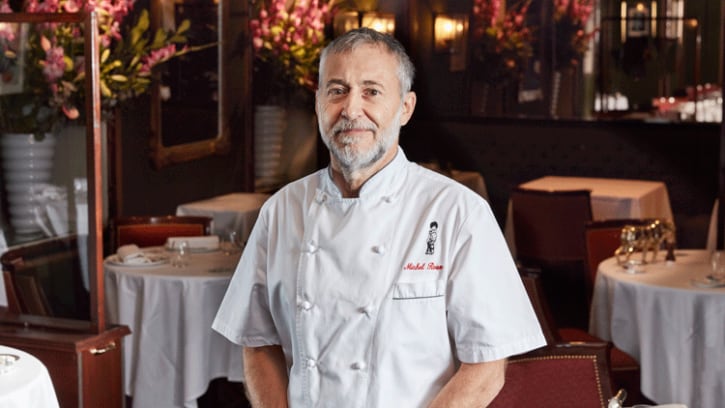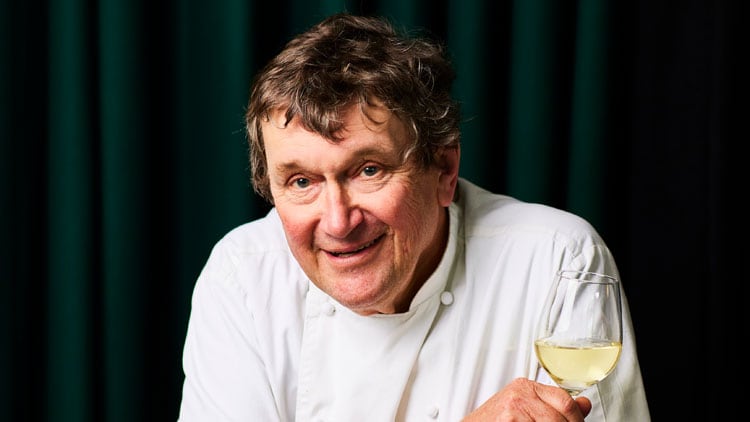It’s been nearly a decade since Rowley Leigh closed his beloved Bayswater restaurant Le Café Anglais. The intervening years have seen him work as a chef consultant for the likes of Soho House Group; and help oversee the launch of Sam’s Riverside as culinary director. Next month, though, the legendary chef, now 73, is returning to London’s restaurant scene with a residency at Notting Hill club and restaurant Laylow.
Called Chez Rowley, the new concept takes inspiration from Leigh’s family holidays across Europe and features an ‘Italian leaning’ menu of sharing plates.
The residency itself came about as a result of Laylow co-founder Taz Fuztok’s admiration of Leigh, and from there a partnership has formed. But it’s very much Leigh who will be driving the concept forward when it launches on 13 September, as he explained to Restaurant when he sat down earlier this week to discuss the new venture.
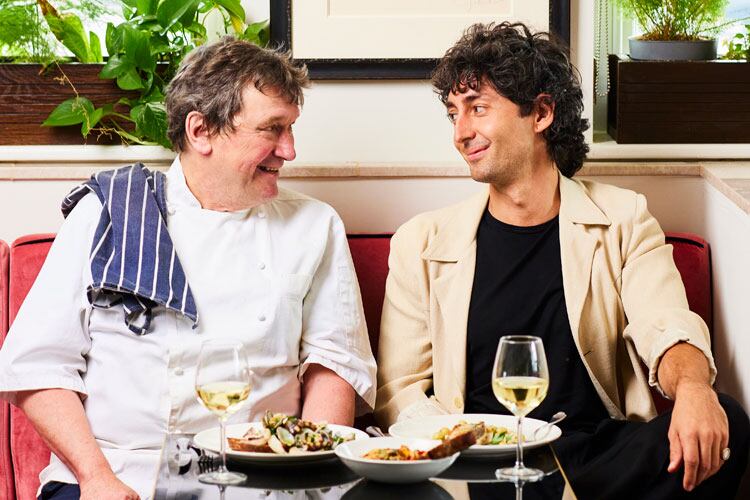
It’s close to 10 years since Le Café Anglais shut its doors. You must be keen to get back into the kitchen?
Yes, in a limited way, to be honest, because I’m old. But I’ve been watching what’s been going on in the restaurant world. And I thought it would be a bit of a challenge.
Challenging in what way?
People say staffing is an issue, but the only good consequence of Brexit has been wage inflation. I’ve always thought it iniquitous that 10 years ago, a fully qualified chef de partie was earning about a third of someone in an equivalent role in another sector. Restaurants have been too cheap, and the customer has been subsidised, partly through the avoidance of wages through the tipping system. I want to try and address these challenges. The restaurants I’ve been working with and consulting on before are often overstaffed. They work differently to how I used to work – they are much more structured and slower and seem to need more people. One of the lovely things about Laylow is it has a tiny kitchen, so you can’t put too many people in it. I’ve worked in small kitchens and single-handedly, and my challenge is to teach these guys how to work like that.
How many chefs will you have in the kitchen with you at Laylow?
Three. I’m not running the kitchen; we have a head chef. And once the kitchen is ticking along like a well-tuned Aston Martin, I don’t expect to be there more than twice a week. But it will obviously take a while to get there.
What can we expect from the menu?
I’m afraid I resist classification. Obviously, my food is based on basic principles and techniques, which are more French than Italian. But I’ve always tried to pare things down. Every chef in the world adheres to Escoffier's method [a radically simplified style that advocated the use of seasonal ingredients and the abandonment of elaborate garnishes], and yet every chef in the world disregards that and thinks they have to make things more complicated. When I’m teaching, I try to get people to take ingredients out rather than add them because you want clarity and simplicity. If you’re a proper chef your aim should be to refine and get to the heart of an ingredient to let it shine. So, it will be simple, pared down, clean, and exciting, I hope.
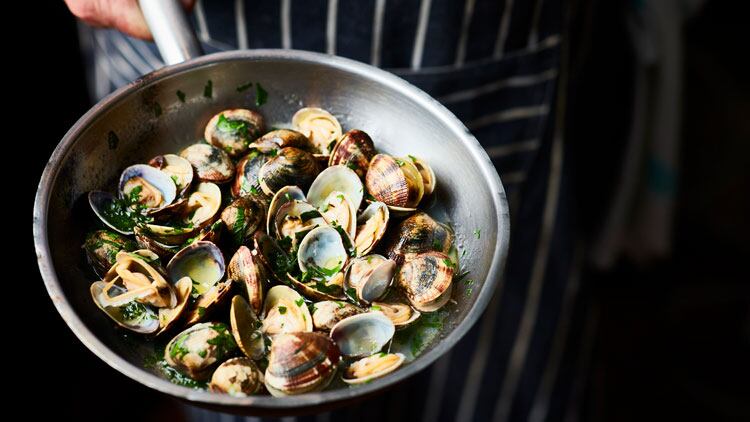
Last year another stalwart of the London restaurant scene, Henry Harris, returned to the kitchen with Bouchon Racine. Did that have any bearing on your desire to get back behind the stove?
There may have been a cheeky part of me that thought I could do it better. But no, not really. I don’t think we’re in for a gerontocratic revolution of old geezers coming back into the kitchen. And some have never left, mind you.
How has the London dining scene changed in the years since you closed Le Café Anglais?
One of the economic consequences is it’s very hard for corporations to run restaurants. There’s been a huge scything down of the middle markets, and the only people that seem to survive are the very top end of luxurious restaurants - the Richard Carings of this world - or the small independents. And I always fear when I see young chefs I really admire open a second and third restaurant, because sooner or later they have to step back. Small is beautiful and there are so many young chefs around in their late twenties and early thirties doing fantastic things.
Earlier in your career you spent time cooking at Le Gavroche in Mayfair. How do you reflect on Michel Roux Jr’s announcement that he’s to close the restaurant early next year?
That’s a tricky one. Every dog has his day. I think the glory days are slightly over and I fully appreciate that he wants to have a life back. Michel looks young, but he’s over 60 now, so he’s entitled to let it go.

